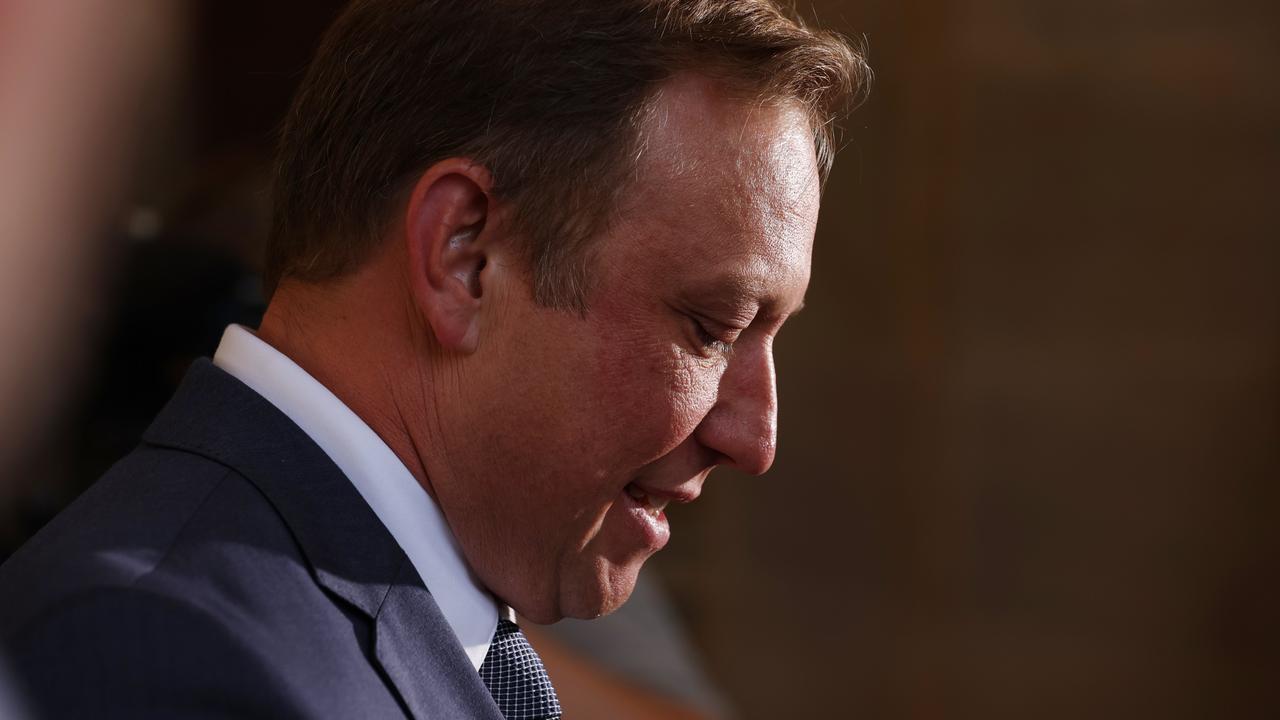Forget the false narrative of this being a tight contest. This state election was a landslide of historic proportions.
Supporters of Steven Miles have been keen to paint the election result as tighter than the wipe-out that had been feared before Annastacia Palaszczuk was rolled as premier last December.
However a deep-dive analysis into how the result compares to other elections tells a different story – this was an anti-Labor landslide of historic scale, the party’s worst result in more than a century (if you ignore the 2012 wipe-out).
PRIMARY VOTE
At midday on Monday, the Labor Party had captured 32.78 per cent of the primary votes counted so far.
The LNP had captured 41.89 per cent of those votes.
At the 2012 Labor wipe-out election, the Campbell Newman-led LNP won 49.7 per cent of first preference votes – and Labor just 26.7 per cent.
Excluding that election, the 2024 primary vote of 32.8 per cent is the lowest for Queensland Labor since 1908.
Even during The Split in the late 1950s and early 1960s, the combined Labor vote in Queensland never fell below 50 per cent.
It has only ever been lower than 40 per cent in 1998, when One Nation won 22.7 per cent of the vote and 11 seats. Labor’s primary vote in that election was 38.9 per cent – and it won 44 seats.
Labor’s low-water mark in the Bjelke-Petersen era, in terms of primary votes, was in 1974 – when it attracted just 36 per cent support – a result better than in 2024.
If you combine the votes of Labor and Queensland Labor during The Split to give a total, you have to go right back to 1908 to find a state election here where the party’s vote was less than what it has attracted at the 2024 election.
In 1908, the Labour (correct spelling) vote was 29.8 per cent under leader David Bowman – a hero of the shearers strikes in 1891.
The 32.4 per cent primary vote is the same as Labor won at the 2018 South Australian election that delivered the Liberals their first victory there in 16 years, under Premier Steven Marshall.
At the 2011 NSW election, then-premier Kristina Keneally’s Labor Party won only 25.6 per cent of primary votes in a wipe-out election.
A year later, Anna Bligh was dumped as Queensland premier with just 26.7 per cent of the primary vote.
In 2021, the Mark McGowan-led Labor Party pandemic avalanche saw the Liberals and Nationals reduced to a combined first preference vote of just 25.3 per cent.
TWO-PARTY PREFERRED VOTE
At lunchtime on Monday, the estimated two-party preferred vote had Labor on 45.9 per cent – a 7.4 per cent swing to the LNP based on the 2020 election result.
When the Goss Labor Government was swept to power at the 1989 election that ended the Nationals era in power, the statewide two-party preferred swing to it was 7.8 per cent – and so just 0.4 per cent more than the swing against Labor in 2024.
Federally, Labor’s two-party preferred vote has been higher than 45.9 per cent at every election since 1977, when it was 45.4 per cent (and 44.3 per cent in the post-Dismissal election in December 1975).
Federal Labor’s two-party preferred vote has only been lower than the one suffered by the Steven Miles-led party at this election four times since World War II – in 1955 (45.8 per cent), 1963 (47.4 per cent), and the two post-Dismissal elections.
SEATS
One-third of Labor MPs will end up being booted from Parliament at this election – with it looking likely the party will top out at perhaps 34 seats in the 93-seat Parliament.
Other than at the 2012 wipe-out election, it has been 38 years since the party won fewer than 44 seats – when at the 1986 election Labor won 31 of the 89 seats.
That was 36 per cent of the total.

In 1980, Labor won just 25 seats in the 82-seat Parliament – 30.4 per cent of the total.
In 2024, 34 seats is 36.5 per cent of the 93 seats now in state parliament.
If Labor ends up with 33 seats, it will be 35.4 per cent of the total – and so its worst performance on this measure since 1980 – 44 years ago.
Labor has also waved goodbye to a number of seats it has never lost.
For more than a century, Labor has held the seats of Mackay and Rockhampton – but they let both slip through their fingers at election.
In Mackay the swing away from Labor was an astonishing 17.3 per cent, in Rockhampton it was 10.3 per cent.
(In Mackay, Labor MP Ed Casey stood as an Independent for five years but returned to the party after that period.)
Labor first won Mackay in 1904.
Rockhampton has elected a Labor MP at every other state election since 1929, when Independent Thomas Dunlop had it for one term.
Before that, Labor held it back to 1912 – before which it was a two-person electorate.
POLLING
Former premier Steven Miles’s supporters say he saved the furniture by turning things around since taking over from Annastacia Palaszczuk last December.
But the reality is that the last opinion poll before she was forced to resign – taken in October – had Labor trailing 48-52 in the two-party preferred vote.

At lunchtime Monday, the actual election two-party preferred estimate was 46-54.
In terms of primary vote, that October YouGov poll for The Courier-Mail had Labor at 33 per cent – exactly what it polled in the real election a year on.
In terms of voter sentiment, 40 per cent of respondents said they were satisfied with the way Ms Palaszczuk was doing the job as premier last October. Fast forward a year, and just 34 per cent of those surveyed during the campaign were satisfied with the way Mr Miles was doing the same job.


Add your comment to this story
To join the conversation, please log in. Don't have an account? Register
Join the conversation, you are commenting as Logout
‘Aww f**k’: Why seaplane may have crashed
A witness has revealed the potential reason why a seaplane flipped and nosedived into waters off Whitsunday Island. See the pictures.
‘Top priority’: Pressure builds on LNP’s crucial rail promise
As the LNP looks on track for a sweeping victory across the Sunshine Coast, local leaders have been quick to remind the party of its ambitious rail promise.
UniSQ Vice Chancellor announces sudden retirement
After almost a decade in the top job, University of Southern Queensland Vice Chancellor Geraldine Mackenzie has stepped down effective immediately.
Contract breached, $330k revenue hole: New e-scooters for Brisbane
Familiar orange e-scooters will return to the streets of Brisbane after another company had its contract torn up after claims it cheated Brisbane City Council out of $330,000 in revenue.
‘Completely untrue’: Premier’s bold first message to public servants
David Crisafulli has sent his first email to Queensland’s army of public servants as the new Premier continues to piece together his frontbench.
Damaging winds, large hail, heavy rain: Southeast in firing line as severe storms sweep region
Severe thunderstorms are sweeping the state’s south, with one area seeing 40mm of rain fall in just 30 minutes. The latest warnings include Brisbane, Ipswich and Logan.